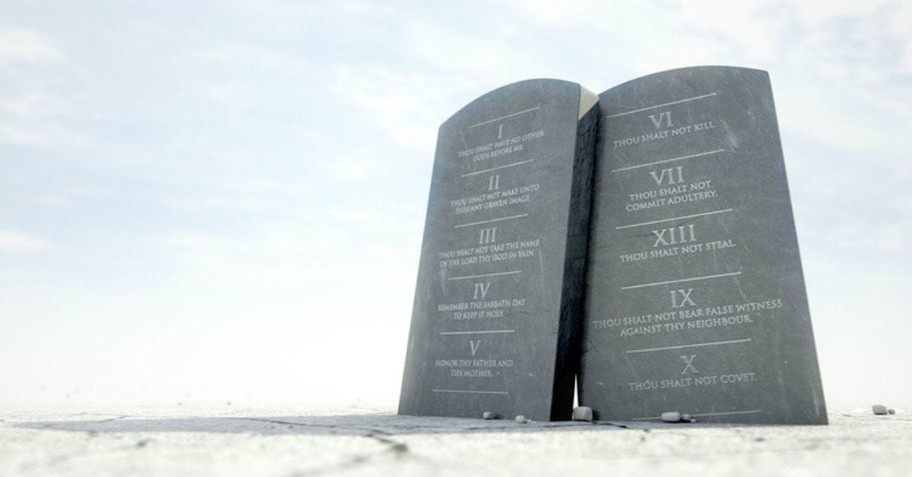"But seek first the kingdom of God and His righteousness, and all these things will be added to you." (Matthew 6:33)
The kingdom of God was one of Jesus’ most talked about matters, but it’s hardly a well-grasped concept for believers today. If you asked a group of people to define it, you would probably get a variety of answers.
Jesus answered, “My kingdom is not of this world. If my kingdom were of this world, my servants would have been fighting, that I might not be delivered over to the Jews. But my kingdom is not from the world.” (John 18:36)
Being asked by the Pharisees when the kingdom of God would come, he answered them, “The kingdom of God is not coming with signs to be observed, nor will they say, ‘Look, here it is!’ or ‘There!’ for behold, the kingdom of God is in the midst of you.” (Luke 17:20-21)
Now after John was arrested, Jesus came into Galilee, proclaiming the gospel of God, and saying, “The time is fulfilled, and the kingdom of God is at hand; repent and believe in the gospel.” (Mark 1:14-15)
The Greek term for 'kingdom' is used 162 times in the New Testament, with most of them referring to the Kingdom of God. Yet, how often do we as believers discuss God’s kingdom and keep it on the forefront of our hearts? I believe one of the reasons we don’t talk about God’s kingdom as much as we should is because we don’t fully understand this mysterious concept. "Both in the Old Testament and in the New Testament the term "kingdom" is understood as dynamic in nature and refers primarily to the rule or reign of a king. It is seldom used in a static sense to refer to a territory. As a result, in the vast majority of instances, it would be better to translate the expression "kingdom of God" as the "rule of God." (Baker's Evangelical Dictionary)
The Kingdom of God Is Not a Physical Place… So What Is It?
Many people think of the kingdom of God as heaven or as the church. However, the kingdom of God is not an actual physical place. A working definition of God’s kingdom from a biblical perspective can be seen as God’s universal reign as Creator and Christ’s exhaustive work as Redeemer. Since God is eternal, His kingdom is eternal. The Kingdom of God transcends time and space.
Below are 10 concepts about the kingdom that are important for a believer to understand:
Photo Credit: Unsplash Stock footage Soundstripe.com & Photo Canva.com

1. God Reigns over All Things.
Since God is the Creator of everything, He reigns over all things. His role as Creator God establishes His authority over the earth and all of His creation:
Psalm 24:1: “The earth is the LORD’s, and everything in it, the world, and all who live in it;”
Psalm 103:19: “The LORD has established his throne in heaven, and his kingdom rules over all.”
Colossians 1:16-17: “For in him all things were created: things in heaven and on earth, visible and invisible, whether thrones or powers or rulers or authorities; all things have been created through him and for him. He is before all things, and in him all things hold together.”
Out of love, God created man and gave him dominion and responsibility over the earth. This was an opportunity for man to participate in God’s kingdom.
Photo Credit: Pexels

2. Sin Challenged God’s Authority over His Kingdom.
Scripture speaks of Satan’s rebellion against God, which consequentially led to the institution of the fallen angel’s establishment of a counterfeit kingdom on earth:
Revelation 12:4: “Its tail swept a third of the stars out of the sky and flung them to the earth. The dragon stood in front of the woman who was about to give birth, so that it might devour her child the moment he was born.”
2 Corinthians 4:4: “The god of this age has blinded the minds of unbelievers, so that they cannot see the light of the gospel that displays the glory of Christ, who is the image of God.”
In Genesis 2, Satan convinced the first humans to trust in themselves, rather than in God’s wisdom, leading them to break fellowship with their Sovereign Creator. Instead of operating out of respect of God’s sovereignty, man desired to trust in half-truths and personal desire. The consequence of their sin was they had to leave the garden, a symbol of perfect provision by their Sustainer.
Photo Credit: Thinkstock

3. God Promises a Kingdom.
Though sin now permeated mankind, God called out a people for Himself to bless, through Abraham. Through a covenant, God promised that through Abraham, He would reestablish His kingdom authority on earth:
Genesis 12:2-3: “And I will make you a great nation, And I will bless you, And make your name great; And so you shall be a blessing; And I will bless those who bless you, And the one who curses you I will curse And in you all the families of the earth will be blessed."
Genesis 17:8: "I will give to you and to your descendants after you, the land of your sojournings, all the land of Canaan, for an everlasting possession; and I will be their God."
Genesis 26:4: "I will multiply your descendants as the stars of heaven, and will give your descendants all these lands; and by your descendants all the nations of the earth shall be blessed;”
Abraham and his descendants would have three things: a land, a nation, and a blessing. This shows God advancing His kingdom through a chosen people who would be permanently set apart for God’s purpose.
Save this free PDF as a reminder of God's Promises - Praying the Promises of God: A 15 Day Prayer Guide
Photo Credit: Unsplash/Brandi Redd

4. God Shows His Standard of Holiness within His Kingdom.
After Israel escapes from Egypt, God establishes a covenant with His people at Sinai. He reveals His name to Moses as I AM, establishing His character as the All-Sustaining One (Exodus 3:14).
When He gives the law to Moses for the people of Israel, He does so to set the nation apart from all others on earth. God’s holiness was the standard for the people’s obedience. The Israelites’ faith was to guide their actions. Forgiveness came by way of sacrifice through mediation of the priest. The conditional nature of the covenant reveals God’s standard of holiness that must be maintained in His kingdom.
Exodus 19:3-6: "Then Moses went up to God, and the Lord called to him from the mountain and said, 'This is what you are to say to the descendants of Jacob and what you are to tell the people of Israel: ‘You yourselves have seen what I did to Egypt, and how I carried you on eagles’ wings and brought you to myself. Now if you obey me fully and keep my covenant, then out of all nations you will be my treasured possession. Although the whole earth is mine, you will be for me a kingdom of priests and a holy nation.’ These are the words you are to speak to the Israelites.'"
Photo Credit: Facebook/Allan Steward

5. God Foreshadowed His Kingdom on Earth.
God promised David that someone from his family would always sit on the throne of Israel (2 Samuel 12-14).
The anointed king of Israel was to be a righteous king who set a standard by which the nation was to live. It is through this king that God would express His rule in Israel. Even though Israel’s kings were unfaithful and lost their throne because of their unfaithfulness, God’s maintained a futuristic messianic promise:
Isaiah 7:13-25: “Then Isaiah said, ‘Hear now, you house of David! Is it not enough to try the patience of humans? Will you try the patience of my God also? Therefore the Lord himself will give you a sign: The virgin will conceive and give birth to a son, and will call him Immanuel. He will be eating curds and honey when he knows enough to reject the wrong and choose the right, for before the boy knows enough to reject the wrong and choose the right, the land of the two kings you dread will be laid waste. The LORD will bring on you and on your people and on the house of your father a time unlike any since Ephraim broke away from Judah—he will bring the king of Assyria.’ In that day the LORD will whistle for flies from the Nile delta in Egypt and for bees from the land of Assyria. They will all come and settle in the steep ravines and in the crevices in the rocks, on all the thornbushes and at all the water holes. In that day the Lord will use a razor hired from beyond the Euphrates River—the king of Assyria—to shave your heads and private parts, and to cut off your beards also. In that day, a person will keep alive a young cow and two goats. And because of the abundance of the milk they give, there will be curds to eat. All who remain in the land will eat curds and honey. In that day, in every place where there were a thousand vines worth a thousand silver shekels, there will be only briers and thorns. Hunters will go there with bow and arrow, for the land will be covered with briers and thorns. As for all the hills once cultivated by the hoe, you will no longer go there for fear of the briers and thorns; they will become places where cattle are turned loose and where sheep run.”
Photo Credit: Thinkstock

"...he will do what is just and right..."
Jeremiah 33:14-26: “‘The days are coming,’ declares the LORD, ‘when I will fulfill the good promise I made to the people of Israel and Judah. “‘In those days and at that time I will make a righteous Branch sprout from David’s line; he will do what is just and right in the land. In those days Judah will be saved and Jerusalem will live in safety. This is the name by which it will be called: The LORD Our Righteous Savior.’ For this is what the LORD says: ‘David will never fail to have a man to sit on the throne of Israel, nor will the Levitical priests ever fail to have a man to stand before me continually to offer burnt offerings, to burn grain offerings and to present sacrifices.’ ” The word of the LORD came to Jeremiah: “This is what the LORD says: ‘If you can break my covenant with the day and my covenant with the night, so that day and night no longer come at their appointed time, then my covenant with David my servant—and my covenant with the Levites who are priests ministering before me—can be broken and David will no longer have a descendant to reign on his throne. I will make the descendants of David my servant and the Levites who minister before me as countless as the stars in the sky and as measureless as the sand on the seashore.’” The word of the LORD came to Jeremiah: “Have you not noticed that these people are saying, ‘The LORD has rejected the two kingdoms he chose’? So they despise my people and no longer regard them as a nation. This is what the LORD says: ‘If I have not made my covenant with day and night and established the laws of heaven and earth, then I will reject the descendants of Jacob and David my servant and will not choose one of his sons to rule over the descendants of Abraham, Isaac and Jacob. For I will restore their fortunes and have compassion on them.’”
Acts 13:22-23: “After removing Saul, he made David their king. God testified concerning him: ‘I have found David son of Jesse, a man after my own heart; he will do everything I want him to do.’ ‘From this man’s descendants God has brought to Israel the Savior Jesus, as he promised.”
Photo Credit: Unsplash/Prince Akachi

6. The Kingdom of God was established on earth when Jesus Christ came into the world.
When the angel Gabriel announced the birth of Jesus to Mary, he confirmed Christ’s birth fulfilled God’s promise to David. The purpose of John the Baptist was to prepare the way for the ministry of Jesus. One of the ways he did this was by calling the people of Israel back to God through repentance:
Matthew 3:2: “and saying, ‘Repent, for the kingdom of heaven has come near.’”
Then, when Jesus came to be baptized, John recognized Jesus as the Lamb of God:
John 1:29: “The next day John saw Jesus coming toward him and said, ‘Look, the Lamb of God, who takes away the sin of the world!”
Design Credit: Rachel Dawson

7. The Kingdom of God is to Be Received.
In Mark 10:13-16, Jesus teaches that one is to receive the kingdom of God like a small child. This teaching indicates that the kingdom is not something that we are to achieve in and of ourselves, but rather are to humbly accept. By grace we are saved:
Ephesians 2:8-9: “For it is by grace you have been saved, through faith—and this is not from yourselves, it is the gift of God—not by works, so that no one can boast.”
Jesus uses a child to illustrate our dependency by which we are to rely on Christ for our entrance into the kingdom. Philippians 2 illustrates Christ’s exceptional obedience. He traded His every heavenly right for a crown of thorns, so we might freely receive salvation. In exchange, the Risen King was given the right to be called Lord.
Photo Credit: Unsplash

8. Entrance into the Kingdom of God Requires Belief and Repentance.
Both John the Baptist and Jesus preached repentance as a prerequisite of belonging to the kingdom of God:
Mark 1:15: “‘The time has come,’ he said. ‘The kingdom of God has come near. Repent and believe the good news!’”
Matthew 3:2; 4:23: “And saying, ‘Repent, for the kingdom of heaven has come near.’” “Jesus went throughout Galilee, teaching in their synagogues, proclaiming the good news of the kingdom, and healing every disease and sickness among the people.”
Repentance and belief in Christ leads a person to a spiritual birth that guarantees entrance into the kingdom (John 3:3-5). As a believer, the kingdom of God resides within us (Luke 17:21). When Jesus taught that the kingdom was within the believer, His intent was to teach the believer of the new spiritual realm in which the person now lived. The Church is a part of the kingdom of God but is not the totality of His Kingdom.
Design Credit: Rachel Dawson

9. The Kingdom of God is Mysterious.
Jesus teaches on the mysteries of the kingdom of God through parables in the New Testament. Matthew 13 introduces a different form of the kingdom that had not been revealed in the Old Testament. Through these parables, Jesus teaches about a spiritual reign of Christ after He is absent from earth, before His second coming. In this chapter, the hearers learn that this age will encompass those who will believe as well as those who will not (13:11-23).
The second parable shows how there will be a time of judgment that separates believers from non-believers (13:24-30). The parable of the mustard seed describes the kingdom of God as a movement of believers that will start small, but then experience rapid growth. The kingdom of God (the kingdom of heaven) looks the opposite of how the world expects. Jesus teaches in the Beatitudes about the blessings the poor, merciful, hungry, and humble will receive in heaven. Those who suffer on earth will be rewarded in heaven. Even though we may not understand everything about the Kingdom, we trust the Teacher.
Photo Credit: Unsplash/Markus Spiske

10. The Kingdom of God has Implications for Believers Today.
As believers of Christ, we are to worship Him as Lord. Acknowledging Christ as Lord is in effect recognizing his reign. We are to live out His teaching and live in anticipation of His return. When Jesus taught His disciples how to pray, part of the directive was to pray that God’s kingdom would come into full fruition on earth:
Matthew 6:10: “Your kingdom come, your will be done, on earth as it is in heaven.”
While the Kingdom of God has been established on earth, it has not yet been made complete. There is a future coming of the kingdom at the end of the age that has yet to happen. We are to pray for the coming of the fullness of God’s kingdom. As members of God’s kingdom, through Christ, we are ambassadors of God on earth (2 Corinthians 5:20). Our role as ambassadors is to proclaim the good news of the kingdom of God to others. This is our Great Commission.
Design Credit: Rachel Dawson

How Should We, as Believers, Respond to the Bible’s Teaching on the Kingdom of God?
- The first is that I realize that I am not the author of my drama. Rather, I am only a small player in God’s great story. This drastic shift in mindset makes me reprioritize my goals and scheduling. Prestige and popularity no longer seem important when I keep in mind God’s Sovereignty and Christ’s redemptive work on the cross.
- Also, with a Kingdom mindset, I find that my trust in God is more secure than it once was. I see how God has worked throughout time to guard over the world and to redeem His people. His loving and just character allow me to realize that He will see His plans through. I can trust in His plans for me no matter what.
- Finally, understanding the Kingdom of God leaves me with a sense of urgency and a challenge to tell others about Christ. God’s patience with us will not last forever and at some point, Christ will return. His second coming will not be to redeem, but to judge. Because we do not know the day or time, we are to use our time wisely to help others receive the kingdom through faith in Christ.
Cortney Whiting is a wife and mother of two wonderfully energetic children. She received her Masters of Theology Degree from Dallas Theological Seminary. After serving in the church for nearly 15 years, Cortney currently serves as a lay-leader and writes for various Christian ministries. You can find her at her blog, Unveiled Graces.
Photo Credit: Unsplash/Ellyot, Main Photo Credit: ©GettyImages/TanesNgamsom
Originally published October 02, 2018.






